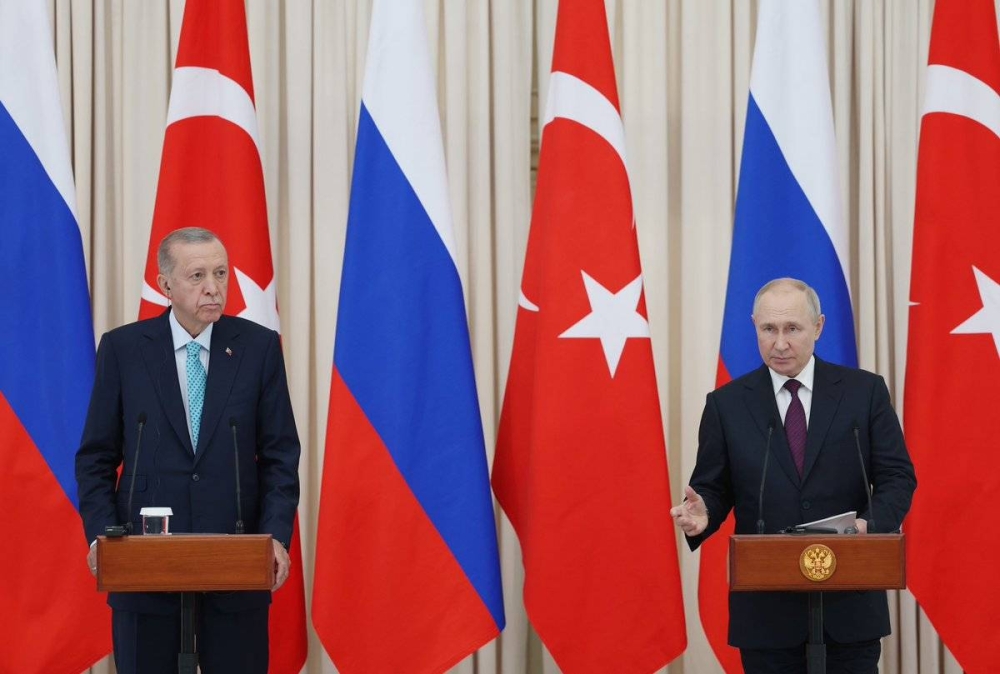Russian President Vladimir Putin said Monday his country was ready to work with Qatar and Turkiye to transport grains to many African countries, considering the Qatari-Turkish path to deliver grains to countries in need as an "additional mechanism" that does not replace the Black Sea Initiative.
During a joint press conference with his Turkish counterpart Recep Tayyip Erdogan, Putin reiterated his country's adherence to its position regarding the grain export agreement through the Black Sea, relinking Moscow's return to the deal with lifting of sanctions on Russian grains and fertilisers.
President Erdogan confirmed that Qatar is already providing financial assistance and financing in particular maritime services to African countries, expressing his hope that the Russian President will respond quickly to the process of transporting grains to six needy African countries.
He acknowledged the legitimacy of Russian fears of returning to the grain agreement without achieving its demands, reiterating his optimism in the possibility of reaching a solution regarding the grain export agreement.
A Russian-Turkish summit was held earlier Monday in Sochi, and the international community is awaiting its results regarding the attempt to persuade Putin to return to the grain export agreement through the Black Sea.
FP adds from Moscow: Putin said Moscow is just weeks away from supplying free grain to six African countries after scrapping a deal allowing Ukrainian food exports through the Black Sea.
His comments during the press conference with Erdogan came hours after Russian forces pounded one of Ukraine's key grain-exporting hubs overnight with a swarm of attack drones.
"We are close to completing agreements with six African states, where we intend to supply foodstuffs for free and even carry out delivery and logistics for free," Putin said.
"Deliveries will begin in the next couple of weeks."
The UN and Turkey-brokered deal, which aimed to ensure safe navigation for civilian ships through the Black Sea, collapsed after Russia pulled out in July.
Tensions have built in the region since, with Russia mounting attacks on Ukrainian export hubs and Kyiv's forces targeting Moscow's naval ports and warships.
Since the deal collapsed, Moscow has repeatedly attacked Ukrainian ports in what Kyiv says is a cynical attempt to damage its exports and undermine global food security.

During a joint press conference with his Turkish counterpart Recep Tayyip Erdogan, Putin reiterated his country's adherence to its position regarding the grain export agreement through the Black Sea, relinking Moscow's return to the deal with lifting of sanctions on Russian grains and fertilisers.
